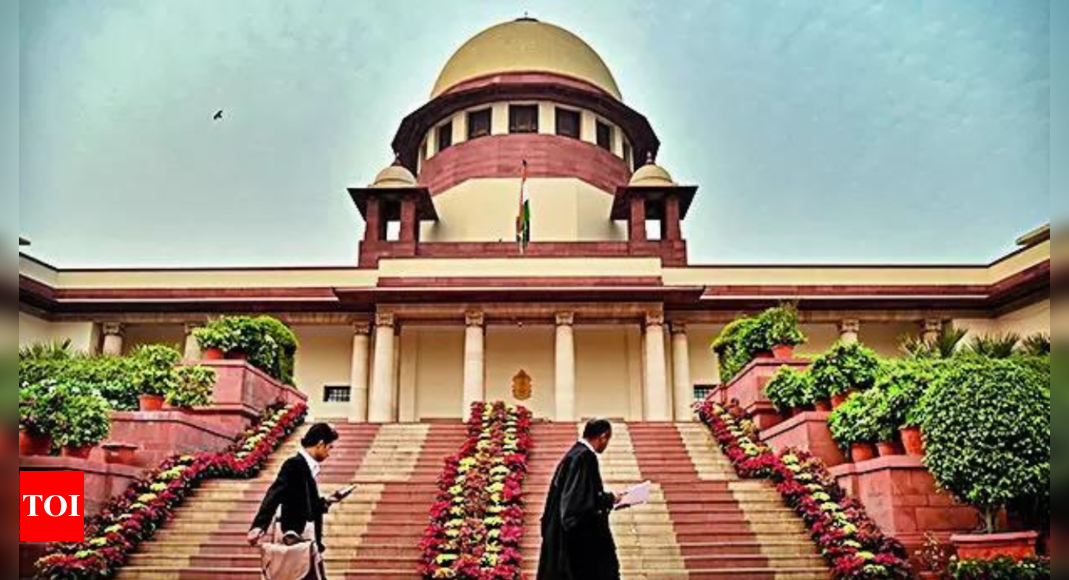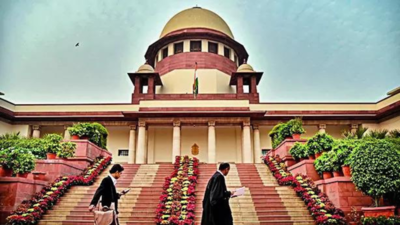NEW DELHI: Supreme Court on Tuesday said Parliament and assemblies should periodically review the working of laws enacted by them to find out whether these legislations have met the desired goals, required modification or repeal.
Expressing disinclination to modify the 45-day time limit prescribed in the Representation of People Act for a candidate to file an election petition to challenge a poll result, a bench comprising Justices Surya Kant and N K Singh said, “While the judicial review can test the validity of a law, there should be periodic legislative review about working of every legislation, say in every 10, 25 or 50 years.”
“The legislature can constitute an expert body which can undertake periodic review to find out whether the law has worked well, whether it has met the objective for which it was enacted and served the purpose, whether there are bottlenecks, deficiencies or grey areas which are required to be removed,” the bench said.
The Justice Kant-led bench, however, said it would not entertain BJP Lok Sabha poll candidate Maneka Sanjay Gandhi‘s writ petition challenging the validity of the 45-day time limit for filing an election petition challenging the poll results. Gandhi was defeated by Samajwadi Party’s Rambhual Nishad by over 43,000 votes in the Sultanpur constituency.
Gandhi’s counsel Sidharth Luthra had said she got to know about the suppression of criminal antecedents of the SP candidate in his election affidavit, a ground for disqualification of a candidate under SC laid down criteria, after the statutory period had elapsed. “If the court extends the period of limitation beyond 45 days, then it would amount to legislating,” Justice Kant said.
Luthra agreed and said there should be a periodic audit of the working of legislations. While withdrawing the writ petition, Luthra said two prayers in the petition could be raised in the appeal against the Allahabad HC order dismissing her election petition.
The bench permitted Luthra to raise those issues in Gandhi’s special leave petition, which challenged the HC order that had dismissed her election petition as time barred as it was filed on July 27 even though the results were declared on June 4 last year.
SC issued notice to Nishad on Gandhi’s appeal and asked the respondent to file his reply in four weeks. Gandhi has alleged that Nishad had disclosed only eight pending criminal cases against him in his election affidavit even though there are 12 criminal cases lodged against him, which as per the RP Act and an SC judgment constituted corrupt practice making his candidature liable to disqualification.




